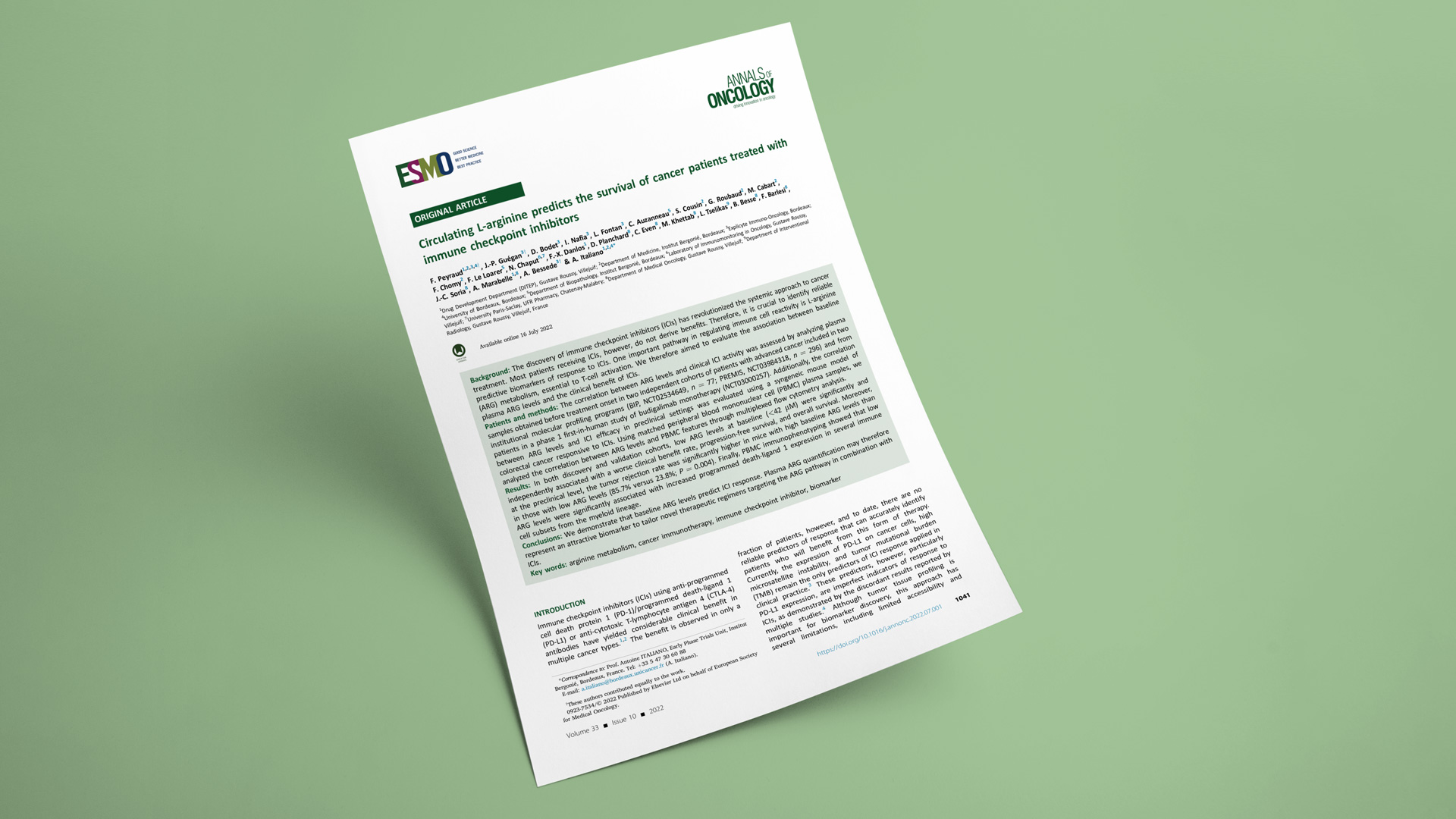Annals of Oncology, 2022, July 15
F Peyraud, J-P Guegan, D Bodet, I Nafia, L Fontan, C Auzanneau, S Cousin, G Roubaud, M Cabart, F Chomy, F Le Loarer, N Chaput, F-X Danlos, D Planchard, C Even, M Khettab, L Tselikas, B Besse, F Barlesi, J-C Soria, A Marabelle, A Bessede, A Italiano
Abstract
Background: The discovery of immune checkpoint inhibitors (ICIs) has revolutionized the systemic approach to cancer treatment. However, most patients receiving ICIs do not derive benefits. Therefore, it is crucial to identify reliable predictive biomarkers of response to ICIs. One important pathway in regulating immune cell reactivity is L-arginine (ARG) metabolism, essential to T-cell activation. We therefore aimed to evaluate the association between baseline plasma ARG levels and the clinical benefit of ICIs.
Patients and methods: The correlation between ARG levels and clinical ICI activity was assessed by analyzing plasma samples obtained before treatment onset in two independent cohorts of patients with advanced cancer included in two institutional molecular profiling programs (BIP, NCT02534649, n = 77; PREMIS, NCT03984318, n = 296) and from patients in a phase 1 first-in-human study of budigalimab monotherapy (NCT03000257). Additionally, the correlation between ARG levels and ICI efficacy in preclinical settings was evaluated using a syngeneic mouse model of colorectal cancer responsive to ICIs. Using matched PBMC plasma samples, we analyzed the correlation between ARG levels and PBMC features through multiplexed flow cytometry analysis.
Results: In both discovery and validation cohorts, low ARG levels at baseline (<42 μM) were significantly and independently associated with a worse clinical benefit rate, progression-free survival, and overall survival. Moreover, at the preclinical level, the tumor rejection rate was significantly higher in mice with high baseline ARG levels than in those with low ARG levels (85.7% versus 23.8%; P = 0.004). Finally, PBMC immunophenotyping showed that low ARG levels were significantly associated with increased PD-L1 expression in several immune cell subsets from the myeloid lineage.
Conclusion: We demonstrate that baseline ARG levels predict ICI response. Plasma ARG quantification may therefore represent an attractive biomarker to tailor novel therapeutic regimens targeting the ARG pathway in combination with ICIs.
Keywords: arginine metabolism; biomarker; cancer immunotherapy; immune checkpoint inhibitor.
https://www.annalsofoncology.org/article/S0923-7534(22)01827-0/fulltext

